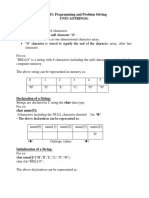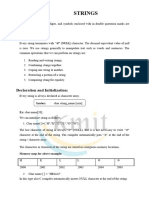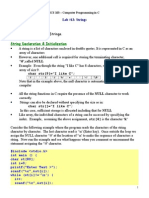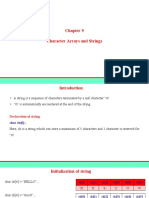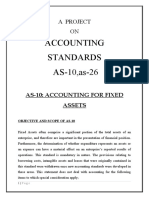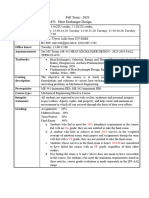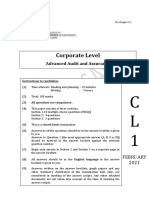0% found this document useful (0 votes)
7 views9 pagesStrings in C
The document provides an overview of strings in the C programming language, explaining their definition as arrays of characters ending with a null character. It covers string manipulation techniques, including initialization, printing, reading from user input, and the use of pointers with strings. Additionally, it lists standard library string functions and user-defined string functions for various string operations.
Uploaded by
ayanmishra9630Copyright
© © All Rights Reserved
We take content rights seriously. If you suspect this is your content, claim it here.
Available Formats
Download as PDF, TXT or read online on Scribd
0% found this document useful (0 votes)
7 views9 pagesStrings in C
The document provides an overview of strings in the C programming language, explaining their definition as arrays of characters ending with a null character. It covers string manipulation techniques, including initialization, printing, reading from user input, and the use of pointers with strings. Additionally, it lists standard library string functions and user-defined string functions for various string operations.
Uploaded by
ayanmishra9630Copyright
© © All Rights Reserved
We take content rights seriously. If you suspect this is your content, claim it here.
Available Formats
Download as PDF, TXT or read online on Scribd
/ 9














